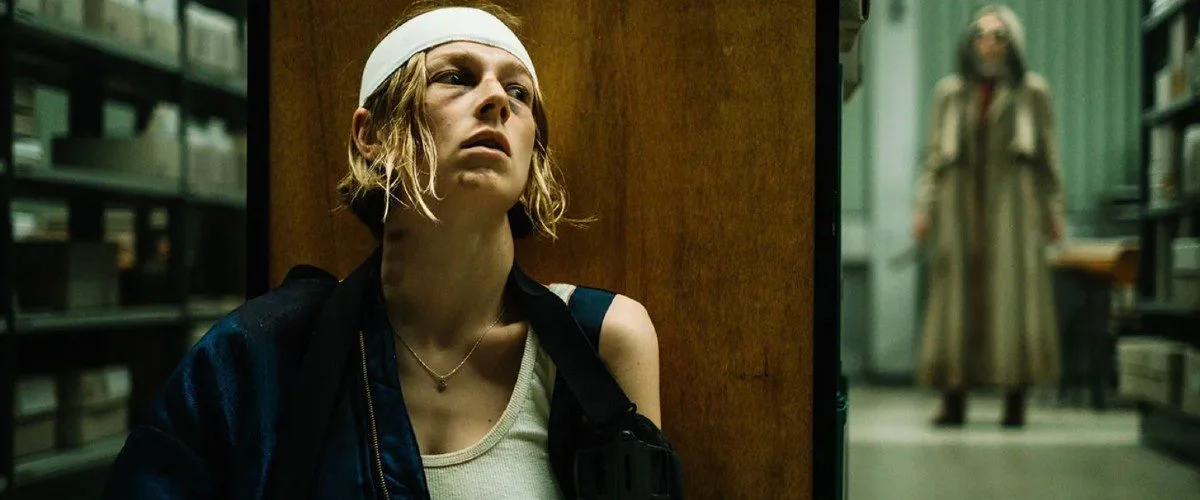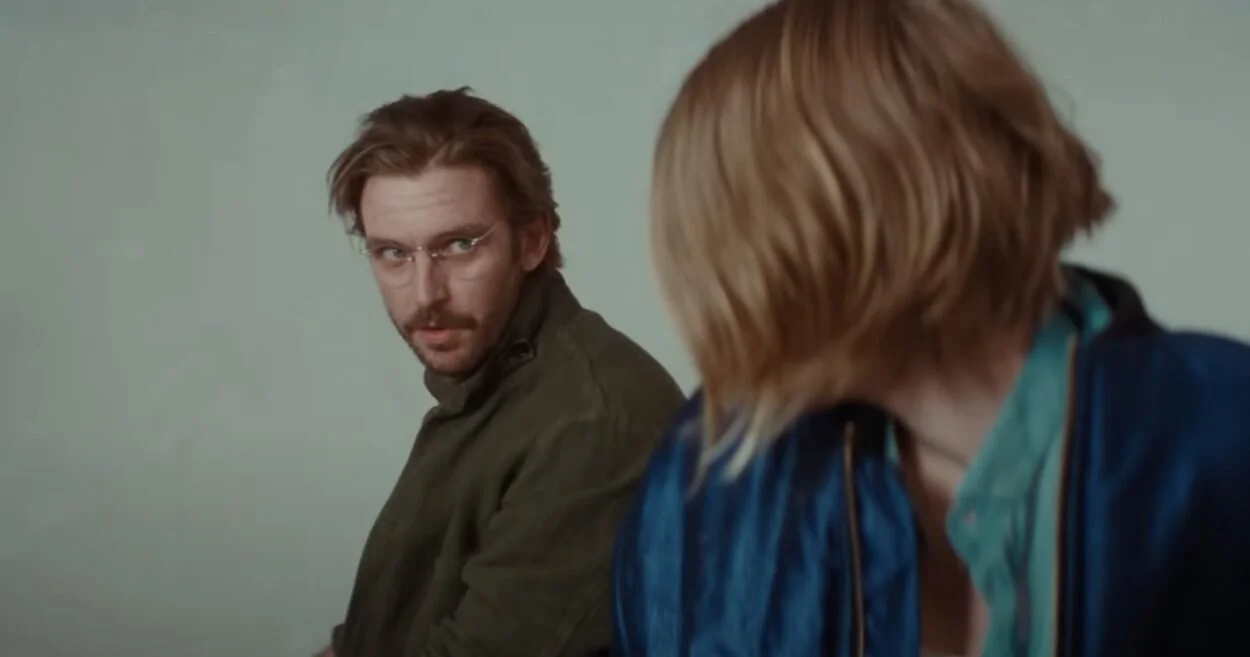“Cuckoo” - Film Review
This review was originally posted on Film Obsessive.
Nothing ever good comes from a secluded resort. That’s just Horror Movie 101. Located in the German Alps, Resort Alpschatten of Cuckoo is no different. With its sweeping views of gorgeous mountains and brutalist architecture mixed with 1980s kitsch, it’s quite easy to fall under the spell of the serenity of living on the edge of civilization. Of course, this wouldn’t be a horror movie if there wasn’t something sinister lurking beneath the surface of the cheery, hospitable veneer. Cuckoo is a twisted thriller about nature, nurture, and preservation, but one that buckles under its lofty aspirations.
Following the death of her mother, seventeen-year-old Gretchen (Hunter Schafer of Kinds of Kindness) is forced to move in with her father (professional movie villain Marton Csokas, recently seen in Sleeping Dogs), his new wife (Jessica Henwick of The Royal Hotel), and their daughter, Alma (Mila Lieu). The whole family is moving to one of the houses on the outskirts of Resort Alpschatten, a tucked-away place run by overly friendly Herr König (fellow professional movie villain Dan Stevens). The place is special to Gretchen’s father and his wife because it’s where they spent their honeymoon eight years ago. Gretchen doesn’t feel like she fits in with her family, and there’s very little to do, so Herr König offers her a job at the reception desk of the resort. At first, it seems like it’s the standard hotel job, but then strange women start randomly throwing up in the lobby and Herr König is adamant that Gretchen not ride her bike home after 10:00 p.m. Gretchen takes it upon herself to discover exactly what’s happening at Resort Alpschatten.
Hunter Schafer in Cuckoo. Image courtesy of NEON.
When stripped down to their barest building blocks, horror and comedy are the same. They rely on the development of tension and then a release. Instead of a comedic punchline, a horror movie gives viewers a blood-soaked Final Girl. In that regard, Cuckoo does deliver on its initial promise. Schafer proves herself to be a more-than-fit Final Girl who finds her way through the chaos around her armed with nothing but a butterfly knife and a desire to get back home. She may be best known for her star-making turn in Euphoria, but for those who never delved into that wild teenage world, Cuckoo is a commanding introduction to her acting. She shared many of her scenes with Stevens, who turns in the oddest performance of the film. Not odd in a negative way, but the campy villain of a B-movie. He’s strange, but you also don’t want to take your eyes off of him.
Dan Stevens in Cuckoo. Image courtesy of NEON.
For all the tension that Cuckoo creates in the first 75% of its runtime, the explanation leaves something to be desired. That, of course, won’t be spoiled here, but just know that the dots aren’t connected as the credits roll. Cuckoo is interested in nature and nurture. If a species needs intervention to survive, does it deserve to survive? Where is the line drawn when it comes to preservation? Herr König introduces himself as someone who believes in preservation, but preservation of what is the film’s secret. As Gretchen learns what Herr König has dedicated his life to doing, she’s forced to ask herself if a person can change on the cellular level. Can they rebel against their nature to become what they were raised to be? It’s these questions that are Cuckoo at its most interesting, but the answers are unsatisfying. Not because of the questions themselves, but because they’re asked and answered in record time. These are the sorts of questions that deserve to be stewed on, to sit with in uncomfortable suspense as the film shows its true feathers.
Horror movies rely on sound perhaps more than any other genre. They can play in a sandbox of noises to create an auditory atmosphere that gets under the skin of the audience. Cuckoo’s sound design effortlessly transports the viewer into Gretchen’s shoes. It isn’t filled with loud flourishes for a few jumpscares. In fact, most of those moments have almost no sound. It’s a subversion of expectations that pays off magnificently in creating a world all its own. No other film sounds like Cuckoo, but surely some copycats will surely try in the next few years.
Hunter Schafer in Cuckoo. Image courtesy of NEON.
In fact, every aspect of the design of the film deserves a moment of praise. The creature that’s lurking around the resort won’t make an appearance in any nightmares, but it is unnerving and unique. Cuckoo also isn’t afraid to let the creature out of the darkness and into clear view, but the film’s use of shadows is thrilling. Many horror movies have a creak down a hallway or a shadow looming, but never give the audience the payoff of something thrilling being revealed. Even if Cuckoo can’t make sense of how to bring it all together, writer/director Tilman Singer has solid foundations.
Perhaps there are some people who are happy to go along for the ride Cuckoo has planned, no matter the ending. It would be easier to do so if the film leaned into its B-movie sensibilities. Cuckoo pokes fun at itself throughout the runtime, and does so charmingly, but had the entire film been on that wavelength, it might’ve been a runaway cult classic. As it stands now, Cuckoo isn’t scary enough to stand as pure horror, nor as pure camp. It lives in an in-between world where it cannot shine as brightly as it should.
support yout local film critic!
~
support yout local film critic! ~
Beyond the Cinerama Dome is run by one perpetually tired film critic
and her anxious emotional support chihuahua named Frankie.
Your kind donation means Frankie doesn’t need to get a job…yet.
Follow me on BlueSky, Instagram, Letterboxd, & YouTube. Check out Movies with My Dad, a new podcast recorded on the car ride home from the movies.



